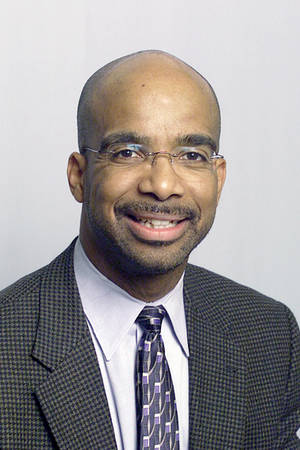The researchers randomized patients to receive either an intravenous bolus of 2 mcg/kg nesiritide or placebo, followed by a continuous intravenous infusion of nesiritide at 0.01 mcg/kg per minute or placebo for up to 7 days. Each treating physician determined the exact duration of the continuous infusion. All patients also received usual care with diuretics and a vasodilator such as intravenous nitroglycerin or nitroprusside. Patients’ average age was 67, and 80% had an ejection fraction of less than 40%. Average respiratory rate was about 24 breaths/min, and average systolic blood pressure was about 124 mm Hg.
At 30 days after the start of treatment, the combined rate of all-cause death or rehospitalization for heart failure, one of the study’s two primary end points, was 10.1% in the 3,511 evaluable placebo patients and 9.4% in the 3,496 evaluable patients who received nesiritide, a nonsignificant difference. Thirty-day mortality was 4% in both arms of the study.
The study’s second primary end point was the change in dyspnea severity at 6 and 24 hours after treatment began. At 6 hours, 15.0% of patients on nesiritide and 13.4% of patients on placebo were "markedly better;" at 24 hours 30.4% of the nesiritide patients and 27.5% of the placebo patients were markedly better. The percentage of patients whose dyspnea was either markedly or moderately better at 6 hours was 45% with nesiritide and 42% with placebo, and at 24 hours it was 68% with nesiritide and 66% with placebo. Although these between-group differences fulfilled usual definitions of statistical significance at both time points, the study prespecified a higher standard for statistical significance that was not met.
A series of subgroup analyses failed to identify any smaller group of patients who received a significant dyspnea or mortality and rehospitalization benefit from nesiritide, except for the roughly 10% of patients who had not been on diuretic treatment at the time of their entry into the study, who did show a significant dyspnea benefit from nesiritide.
The results also showed no suggestion whatsoever of an adverse renal effect from nesiritide, with no change in patients’ creatinine levels or in their glomerular filtration rate through the 30 days after treatment. Nesiritide-treated patients had a 7% rate of symptomatic hypotension compared with 4% in the placebo group, a statistically significant difference.
"We run out of [treatment] options really fast for patients with acute decompensated heart failure if patients don’t get better with diuretics, morphine, and vasodilators," commented Dr. Jessup. "People will use [nesiritide] when patients fail to respond" to the standard agents. "We now know it’s relatively safe." But nesiritide is not a first-line drug that should be used first, she said.
"The problem with acute decompensated heart failure is that it is a vast array of different patients and different pathologic entities. Some patients have normal ejection fractions, some patients have renal insufficiency, some have
severe hypertension. No single treatment will work. Everyone in heart failure who you talk to says some patients really respond to nesiritide. Who are those patients, and how can we identify them? I don’t know," Dr. Jessup said.
Acute heart failure patients who may benefit most from nesiritide may be those who are sicker, have a low ejection fraction, or present to the hospital sooner, but more data are needed to get a clearer profile of who these patients are, Dr. Hernandez said.
ASCEND-HF was sponsored by Scios, a Johnson & Johnson company, which markets nesiritide (Natrecor). Dr. Hernandez is a consultant to Corthera, Medtronic, and AstraZeneca, and has received research grants from Johnson & Johnson, Merck, and Proventys. Dr. Califf is a consultant to AstraZeneca, Bristol-Myers Squibb, Boehringer-Ingelheim, Daiichi Sankyo, GlaxoSmithKline, Heart.org, and Kowa research. He received research grants from Amlin and Johnson & Johnson-Scios. Dr. Jessup is a consultant to Medtronic, a speaker on behalf of Boston Scientific, and has received research funding from Scios. Dr. Bove has been an unpaid consultant to Insight Telehealth Systems.


